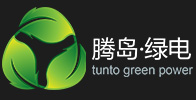how do you recycle a solar panel?
by:Tunto
2020-03-06
The growing global demand for green energy is a paradox.
As sales of solar panels and wind turbines increase, the scale of solar panels and wind turbines that are frequently used is also increasing
The problems that are now overlooked are left to future generations.
What happens when all the \"green\" infrastructure life ends? When early-
The green technology has been replaced. now many technologies have entered landfill sites or incinerators.
This is not only a blow to waste.
The number of garbage in the world has increased by thousands of tons every year, but it is also a huge missed opportunity.
Solar panels include metals and glass, which can be reused in the manufacture of other products if they are separated and captured.
If the alternative technology is to be truly green and an effective and efficient recycling system needs to be established quickly.
Greenpeace and the European Association of photovoltaic industries expect solar power to grow tenfold over the next decade.
In fact, in my native France alone, 500 MW of solar panels are installed each year, representing 50,000 tons of potential waste in the future.
4 million tons of panels have been installed throughout Europe.
Through innovative technologies still under development, it is possible to recycle more than 90% of solar panels.
However, given the volatility of the value of the raw materials generated from this, this is a high
The development of the risk industry, lack of research and development.
The basic recycling plan does exist, but is usually focused on two valuable components. -
Glass and aluminum frame, for example--
Throw away the rest, including silver, silicon and tin, because there is no cost yet.
It is effective to recycle them.
I am passionate about the full recovery of green technology.
With the support of the French government, my company has been conducting research and development to design a process that allows this to happen, and I believe the recycling of green technology will come true, one day, to be a profitable industry.
Recycling will be so broad and effective that recycling companies have to pay consumers or organizations for most of the materials they recycle, sell the materials they extract and make a profit from them.
However, what the industry needs now is a kickstart.
The development of the green energy industry has been highly subsidized, especially in China, which now accounts for the vast majority of solar panel production.
There, manufacturers benefit from cheap land, research funding and enviable overdraft facilities.
In other markets, such as the UK, subsidies are provided to consumers in the form of generous feed
Tariffs stimulate demand.
Now, the catalyst for the development of green recycling --
Energy technologies are needed, not in the form of government subsidies, but through regulation, creating conditions, conducting research, improving efficiency and creating profitable industries.
The emerging recycling sector of green hardware needs a buffer to protect it from fluctuations in commodity prices.
This buffer can be provided by funds or taxes raised from manufacturers, retailers, consumers or a combination of these three.
Ultimately, more efficient and cost
Effective recycling, the smaller the mat needs to be.
However, by assigning at least some of the responsibility for recycling to manufacturers, it will help them to consider the end of the product lifecycle during the design phase.
For example, copper and engine parts of wind turbines are currently easily recycled, but the carbon fiber that forms the main part of the structure is actually not possible to recover effectively.
In the European Union, regulations on the treatment of waste electrical and electronic equipment (WEEE)
Include solar panels and point out the way forward for handling Green hardware.
In the Czech Republic, for example, companies that sell solar panels must contribute to funds that fund the collection and recycling of old equipment.
France will launch tangible charges this year (
Also known as \"ecologytax\")
In Romania, a fee has been added to the price of goods at the point of sale to subsidize recycling ---
Not only does it raise funds to help with recycling, it also raises consumers\' awareness of the life cycle of the products they buy.
A healthy economy requires constant production and consumption.
However, due to the scarcity of natural resources, in order to achieve a sustainable future, we must strive to achieve a circular economy in which products that have ended their lives are no longer considered waste, it is a valuable resource.
This article is part of a series of articles produced by Huffington Post and the World Economic Forum to commemorate the 2014 annual meeting of the Forum (in Davos-
On January, clostes, Switzerland. 22-25).
The Forum\'s global community of shapers is a network of cities
Centres developed and led by young people, their potential, achievements and motivation to contribute to the community are excellent.
Read all the posts in this series here.
As sales of solar panels and wind turbines increase, the scale of solar panels and wind turbines that are frequently used is also increasing
The problems that are now overlooked are left to future generations.
What happens when all the \"green\" infrastructure life ends? When early-
The green technology has been replaced. now many technologies have entered landfill sites or incinerators.
This is not only a blow to waste.
The number of garbage in the world has increased by thousands of tons every year, but it is also a huge missed opportunity.
Solar panels include metals and glass, which can be reused in the manufacture of other products if they are separated and captured.
If the alternative technology is to be truly green and an effective and efficient recycling system needs to be established quickly.
Greenpeace and the European Association of photovoltaic industries expect solar power to grow tenfold over the next decade.
In fact, in my native France alone, 500 MW of solar panels are installed each year, representing 50,000 tons of potential waste in the future.
4 million tons of panels have been installed throughout Europe.
Through innovative technologies still under development, it is possible to recycle more than 90% of solar panels.
However, given the volatility of the value of the raw materials generated from this, this is a high
The development of the risk industry, lack of research and development.
The basic recycling plan does exist, but is usually focused on two valuable components. -
Glass and aluminum frame, for example--
Throw away the rest, including silver, silicon and tin, because there is no cost yet.
It is effective to recycle them.
I am passionate about the full recovery of green technology.
With the support of the French government, my company has been conducting research and development to design a process that allows this to happen, and I believe the recycling of green technology will come true, one day, to be a profitable industry.
Recycling will be so broad and effective that recycling companies have to pay consumers or organizations for most of the materials they recycle, sell the materials they extract and make a profit from them.
However, what the industry needs now is a kickstart.
The development of the green energy industry has been highly subsidized, especially in China, which now accounts for the vast majority of solar panel production.
There, manufacturers benefit from cheap land, research funding and enviable overdraft facilities.
In other markets, such as the UK, subsidies are provided to consumers in the form of generous feed
Tariffs stimulate demand.
Now, the catalyst for the development of green recycling --
Energy technologies are needed, not in the form of government subsidies, but through regulation, creating conditions, conducting research, improving efficiency and creating profitable industries.
The emerging recycling sector of green hardware needs a buffer to protect it from fluctuations in commodity prices.
This buffer can be provided by funds or taxes raised from manufacturers, retailers, consumers or a combination of these three.
Ultimately, more efficient and cost
Effective recycling, the smaller the mat needs to be.
However, by assigning at least some of the responsibility for recycling to manufacturers, it will help them to consider the end of the product lifecycle during the design phase.
For example, copper and engine parts of wind turbines are currently easily recycled, but the carbon fiber that forms the main part of the structure is actually not possible to recover effectively.
In the European Union, regulations on the treatment of waste electrical and electronic equipment (WEEE)
Include solar panels and point out the way forward for handling Green hardware.
In the Czech Republic, for example, companies that sell solar panels must contribute to funds that fund the collection and recycling of old equipment.
France will launch tangible charges this year (
Also known as \"ecologytax\")
In Romania, a fee has been added to the price of goods at the point of sale to subsidize recycling ---
Not only does it raise funds to help with recycling, it also raises consumers\' awareness of the life cycle of the products they buy.
A healthy economy requires constant production and consumption.
However, due to the scarcity of natural resources, in order to achieve a sustainable future, we must strive to achieve a circular economy in which products that have ended their lives are no longer considered waste, it is a valuable resource.
This article is part of a series of articles produced by Huffington Post and the World Economic Forum to commemorate the 2014 annual meeting of the Forum (in Davos-
On January, clostes, Switzerland. 22-25).
The Forum\'s global community of shapers is a network of cities
Centres developed and led by young people, their potential, achievements and motivation to contribute to the community are excellent.
Read all the posts in this series here.
Custom message
 miko@tunto.cn
miko@tunto.cn

































